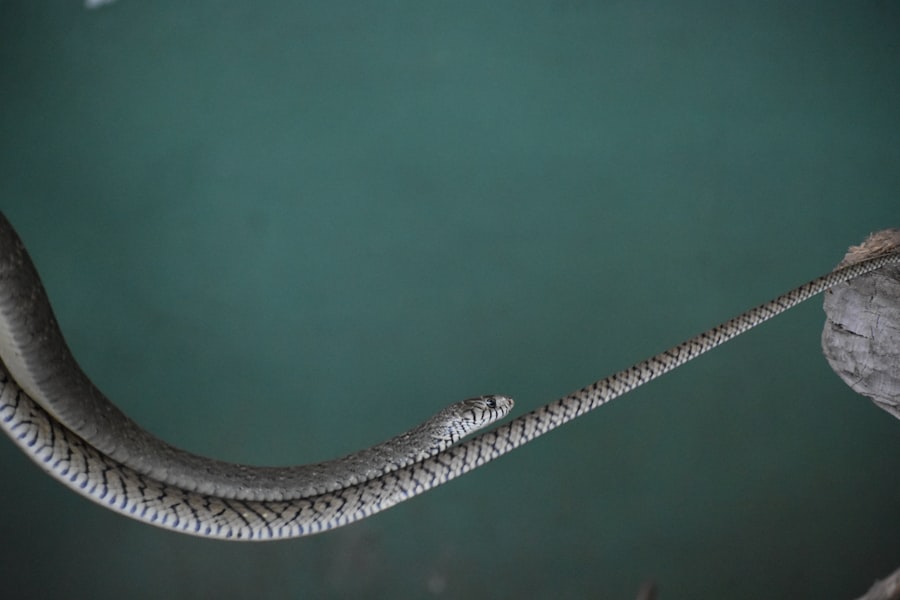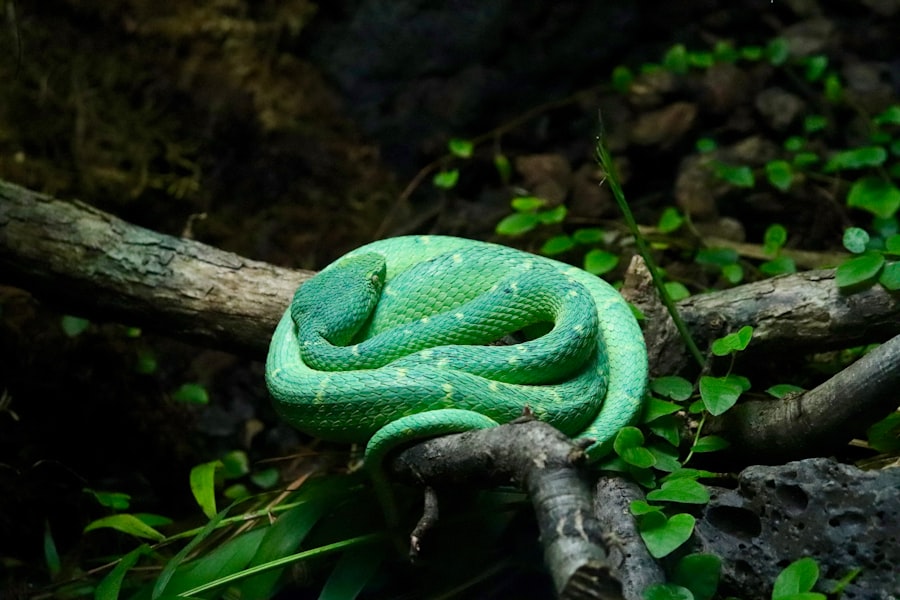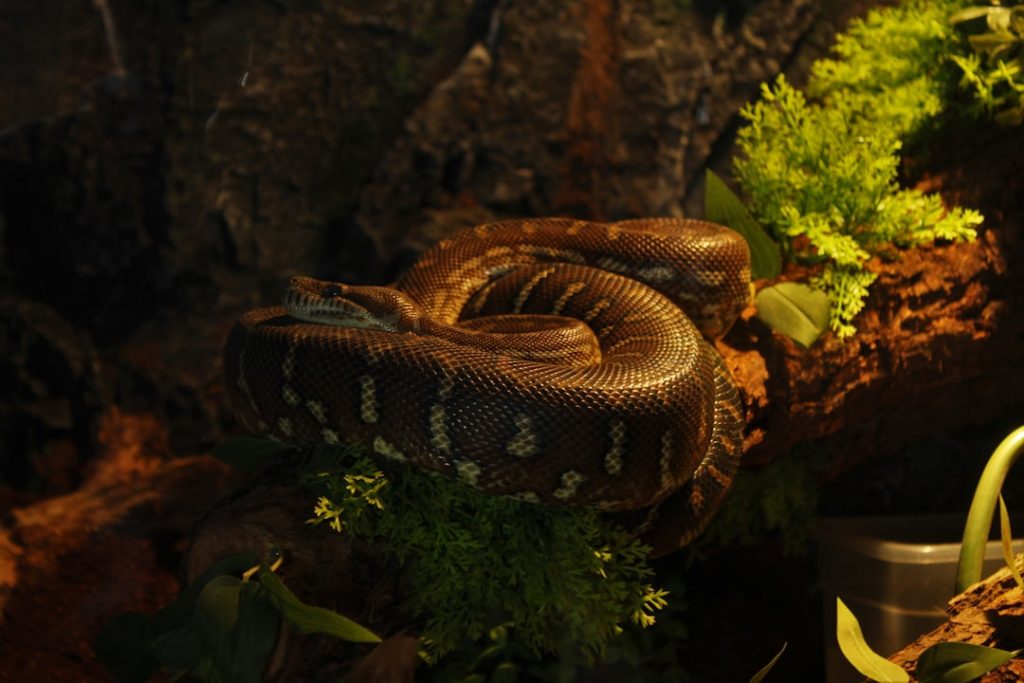When protecting chickens from snakes, it is crucial to identify which snake species pose a threat to the flock. Venomous snakes such as rattlesnakes, copperheads, and coral snakes are particularly dangerous, as their venom can rapidly incapacitate or kill chickens. Non-venomous snakes like rat snakes and king snakes also present a risk, primarily targeting eggs and young chicks.
Familiarizing oneself with local snake species and their identification characteristics is essential for effective chicken protection. Understanding snake behavior and habits is equally important. Snakes, being cold-blooded reptiles, are attracted to warm, sheltered areas that provide food and water.
They are skilled climbers, capable of accessing chicken coops and nesting areas with ease. This knowledge allows for the implementation of proactive measures to safeguard chickens and prevent snakes from entering their living spaces.
Table of Contents
- 1 Creating a snake-proof coop: Tips for fortifying your chicken coop to keep snakes out
- 2 Natural deterrents: Using plants and other natural methods to repel snakes from your chicken coop
- 3 Keeping the area clean: How maintaining a tidy and clutter-free environment can discourage snakes from nesting
- 4 Predator-proof fencing: Installing barriers and fencing to prevent snakes from accessing your chickens
- 5 Monitoring and observation: Tips for regularly checking for signs of snake activity around your chicken coop
- 6 Seeking professional help: When to call in a wildlife expert to address a persistent snake problem
- 7 FAQs
- 7.1 What are some natural ways to keep snakes away from chickens?
- 7.2 What are some physical barriers to keep snakes away from chickens?
- 7.3 Are there any predator deterrent devices that can help keep snakes away from chickens?
- 7.4 What should I do if I encounter a snake near my chicken coop?
- 7.5 Are there any plants that can help repel snakes from the chicken coop area?
Key Takeaways
- Some types of snakes pose a danger to chickens, including rat snakes, king snakes, and black racers
- Fortify your chicken coop by sealing all gaps and cracks, using hardware cloth, and installing a secure door
- Planting marigolds, wormwood, and garlic around the coop can help repel snakes
- Keep the area around the coop clean and clutter-free to discourage snakes from nesting
- Install predator-proof fencing, burying it at least 12 inches deep, to prevent snakes from accessing your chickens
- Regularly check for signs of snake activity, such as shed skins or tracks, around your chicken coop
- Call in a wildlife expert if you have a persistent snake problem that you can’t handle on your own
Creating a snake-proof coop: Tips for fortifying your chicken coop to keep snakes out
Seal All Entry Points
One of the most effective ways to protect your chickens from snakes is to fortify their coop and nesting areas to make them snake-proof. Start by inspecting the coop for any gaps or openings that snakes could use to gain entry. Seal any cracks or holes with hardware cloth or wire mesh to prevent snakes from slithering in.
Prevent Burrowing and Elevate the Coop
Additionally, consider installing a skirt of hardware cloth around the perimeter of the coop to prevent snakes from burrowing underneath. Another important step in creating a snake-proof coop is to elevate the coop off the ground. This can be achieved by placing the coop on stilts or using a raised platform.
Maintain a Clear and Secure Environment
Elevating the coop not only makes it more difficult for snakes to access, but it also helps to keep the area underneath clear and free from debris where snakes could hide. Furthermore, consider installing a secure door with a tight-fitting latch to prevent snakes from entering the coop.
Natural deterrents: Using plants and other natural methods to repel snakes from your chicken coop

In addition to fortifying your chicken coop, you can also use natural deterrents to repel snakes from the area. Certain plants are known for their ability to repel snakes, such as marigolds, wormwood, and lemongrass. Planting these around the perimeter of the coop can help deter snakes from approaching.
Additionally, spreading a layer of cedar mulch around the coop can also act as a natural snake repellent, as snakes are known to dislike the scent of cedar. Another natural method for repelling snakes is the use of essential oils. Certain essential oils such as cinnamon, clove, and eucalyptus are known for their ability to repel snakes.
You can create a natural snake repellent spray by diluting these essential oils with water and spraying it around the coop and nesting areas. This can help create a barrier that deters snakes from entering the space.
Keeping the area clean: How maintaining a tidy and clutter-free environment can discourage snakes from nesting
Snakes are attracted to cluttered and untidy environments where they can find shelter and food. By keeping the area around your chicken coop clean and free from clutter, you can discourage snakes from nesting in the vicinity. Start by removing any piles of debris, such as woodpiles, brush, or rocks, where snakes could hide.
Keep the grass around the coop mowed short and remove any overgrown vegetation that could provide cover for snakes. It’s also important to keep the area free from potential food sources for snakes. This means keeping any spilled chicken feed cleaned up and stored in secure containers.
Additionally, regularly remove any eggs that have been laid outside of the nesting boxes, as these can attract snakes looking for an easy meal. By maintaining a tidy and clutter-free environment around your chicken coop, you can make the area less appealing to snakes.
Predator-proof fencing: Installing barriers and fencing to prevent snakes from accessing your chickens
Installing predator-proof fencing around your chicken coop is an essential step in protecting your flock from snakes. Use hardware cloth or wire mesh with small openings to create a barrier that prevents snakes from slithering through. It’s important to bury the fencing at least 12 inches into the ground to prevent snakes from burrowing underneath.
Additionally, consider adding an outward-facing overhang at the top of the fence to prevent snakes from climbing over. In addition to predator-proof fencing, consider adding a layer of protection around the perimeter of the coop by using snake-proof barriers such as metal flashing or sheet metal. This can help prevent snakes from gaining access to the coop by climbing up the sides.
By installing predator-proof fencing and barriers, you can create a secure enclosure that effectively keeps snakes out.
Monitoring and observation: Tips for regularly checking for signs of snake activity around your chicken coop

Identifying Potential Entry Points
Look for any holes or openings that may indicate snake activity, and promptly address any potential entry points. This will help prevent snakes from entering the coop and threatening your chickens.
Monitoring Chicken Behavior
Additionally, keep an eye out for any unusual behavior in your chickens, as this could be a sign that there is a snake in the vicinity. Changes in behavior, such as increased stress or anxiety, can indicate the presence of a predator.
Using Technology to Your Advantage
Consider installing motion-activated cameras around the coop to monitor for any snake activity during the night or when you’re not present. This can help you identify any potential threats and take proactive measures to protect your chickens.
By regularly checking for signs of snake activity and monitoring the area around your chicken coop, you can stay one step ahead in keeping your flock safe.
Seeking professional help: When to call in a wildlife expert to address a persistent snake problem
If you’re dealing with a persistent snake problem despite taking all necessary precautions, it may be time to seek professional help from a wildlife expert. A professional can conduct a thorough assessment of your property and provide recommendations for effectively deterring snakes from your chicken coop. They may also be able to implement more advanced measures such as snake exclusion barriers or traps.
In some cases, it may be necessary to relocate certain types of snakes that pose a threat to your chickens. A wildlife expert can safely capture and relocate these snakes away from your property, ensuring the safety of both your flock and the snake. Additionally, they can provide valuable advice on how to prevent future snake infestations and protect your chickens in the long term.
In conclusion, protecting your chickens from snakes requires a multi-faceted approach that includes understanding the types of snakes that pose a threat, fortifying the coop, using natural deterrents, maintaining a tidy environment, installing predator-proof fencing, monitoring for signs of snake activity, and seeking professional help when needed. By taking proactive measures and staying vigilant, you can effectively safeguard your flock from potential snake threats and create a safe and secure living environment for your chickens.
If you’re looking for ways to keep snakes away from your chickens, you may also be interested in learning about the mating season for turkeys. Understanding the behavior of different poultry can help you create a safe and secure environment for your birds. Check out this article on mating season for turkeys to learn more about how to care for your flock.
FAQs
What are some natural ways to keep snakes away from chickens?
Some natural ways to keep snakes away from chickens include keeping the chicken coop area clean and free of debris, using essential oils such as cinnamon or clove to create a barrier, and keeping the grass and vegetation around the coop trimmed.
What are some physical barriers to keep snakes away from chickens?
Physical barriers to keep snakes away from chickens include installing hardware cloth or mesh around the coop and run, using snake-proof fencing, and sealing any gaps or holes in the coop to prevent snakes from entering.
Are there any predator deterrent devices that can help keep snakes away from chickens?
Yes, there are predator deterrent devices such as motion-activated sprinklers, ultrasonic repellers, and predator decoys that can help keep snakes away from chickens.
What should I do if I encounter a snake near my chicken coop?
If you encounter a snake near your chicken coop, it’s important to remain calm and slowly back away from the snake. It’s best to contact a professional wildlife removal service to safely and humanely remove the snake from your property.
Are there any plants that can help repel snakes from the chicken coop area?
Yes, some plants such as marigolds, wormwood, and lemongrass are known to repel snakes and can be planted around the chicken coop area to help keep snakes away.
Meet Walter, the feathered-friend fanatic of Florida! Nestled in the sunshine state, Walter struts through life with his feathered companions, clucking his way to happiness. With a coop that’s fancier than a five-star hotel, he’s the Don Juan of the chicken world. When he’s not teaching his hens to do the cha-cha, you’ll find him in a heated debate with his prized rooster, Sir Clucks-a-Lot. Walter’s poultry passion is no yolk; he’s the sunny-side-up guy you never knew you needed in your flock of friends!







